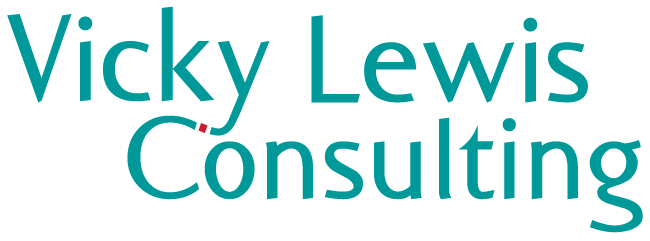International Strategy for Higher Education Institutions
International Strategy for Higher Education Institutions

Posted on by Vicky Lewis
 Confession time: it’s been over four months since my last blog. This happens every now and then when ‘work-work’ (consultancy) takes over. I hate it when I lose momentum like this as, the longer I go without writing one, the harder it is to re-start.
Confession time: it’s been over four months since my last blog. This happens every now and then when ‘work-work’ (consultancy) takes over. I hate it when I lose momentum like this as, the longer I go without writing one, the harder it is to re-start.
So, I’m easing myself back in by repurposing a conference presentation on transnational education (TNE) from earlier this month.
TNE certainly seems to be a hot topic. The majority of my recent consultancy work with universities has been TNE-related: whether helping to identify strategic priorities for institutional TNE development; formulating country-specific growth strategies; or advising on repositioning existing TNE provision.
Meanwhile:
And that’s just the tip of the iceberg.
Today’s blog draws on some thoughts about repositioning UK TNE for success, which I shared at the Westminster Higher Education Forum conference on Next steps for UK transnational education on 7th March 2024.
The last 20 years have seen a huge expansion of UK TNE: at the last count there were more than 550,000 UK TNE students in 230 countries and territories.
While the breadth and scale of UK provision is the envy of other education-exporting nations and almost every UK university is now engaged in TNE, most institutions only have low numbers of TNE students and their portfolio of partnerships has often developed in an organic, reactive way.
We are entering a new era for TNE and the unmet demand for higher education in many countries presents great opportunities - but the UK will build sustainably on our success only if we:
The world has moved on and some previously accepted models of TNE now come across as extractive and transactional. For sustainable growth in all host countries, both established and emerging, we need to engage in collaborative TNE with transformational impact.
Host countries and institutions will choose partners that respond to their priorities and treat them equitably.
And this is where the UK has an opportunity to build on its strong reputation for quality. We should augment this by establishing a reputation for ethical, equitable and innovative TNE. Not just an extension of our domestic delivery, but partnerships that have a positive local impact. This can take many forms: from widening access and retaining talent in-country to supporting specific UN Sustainable Development Goals.
One example of how the UK sector has shown that we can live out some of the values underpinning international education is the UK-Ukraine twinning scheme. This has had a profound effect on partners in both countries. In the UK it has been the catalyst for a mindset shift (including in university boardrooms) which has resulted in meaningful partnerships and organisational learning.
As someone who works with different UK universities on TNE strategy development, I’ve seen some positive reframing. There was a time when TNE developments were largely opportunistic. Now, at many institutions, more thought is going into the kinds of TNE activities that fit with institutional mission and values and more use is being made of data and insights to inform decisions on which specific countries and regions to engage with.
Part of this is a mapping of institutional objectives onto partner country priorities and finding ways to achieve both. One good example is the University of London’s work to expand capacity in Nigerian higher education through distance learning. Others focus on building a critical mass of activity around institutional partnerships in a particular country, engaging with wider stakeholders and communities and becoming a valuable part of the host country ecosystem.
Ensuring that the value of TNE is seen internally, at the home campus, is also important for sustainable growth. Partnerships need to benefit the whole university community. Whether that’s through Collaborative Online International Learning projects that enrich the curriculum, through outward mobility and exchanges, or through collaborative research.
And this needs to be reflected in a broader suite of success metrics. While student numbers and revenue are important, partnerships cannot be reduced only to these narrow quantitative measures. Social and educational impact should also be measured – for example through employment outcomes, research outputs and curriculum internationalisation.
Picking up the notion of moving on from transactional, mono-dimensional forms of TNE, we are already seeing more multi-dimensional relationships with shared teaching, research, industry engagement and two-way mobility. The relationship between Lancaster (UK) and Deakin (Australia) universities started with student mobility and research collaboration: now they are establishing an innovative joint campus in Indonesia to support that country’s educational and research aspirations.
We need to evolve our financial models for North-South partnerships, as has been proposed by Cormack Consultancy Group and others. One suggestion is to set up a partnership development fund to ensure any relationship addresses both parties’ priorities, not just those of the wealthier partner.
Our teaching models also need to evolve to embed local elements into design, content and pedagogy, ensuring the educational experience is relevant to the local context and not exacerbating brain drain by being geared towards the UK employment context. In parallel we need to contribute to careers and employability support that is locally tailored.
Partnerships themselves should become more permeable, with joint staff and student development opportunities, and the use of technology to connect people and link them to wider networks.
Sustainable success will be achieved via two-way relationships based on ongoing mutual learning. If the UK becomes known not just for high quality and innovative TNE but also for our ethical and equitable approach to it, that will put us in the strongest possible position.
TRANSNATIONAL EDUCATION GLOBAL ENGAGEMENT STRATEGY SUSTAINABILITY
|
|
Sajeewa Meepage
11 April 2024 at 20:12 (Comment 1 of 1)
These aspects and thoughts are spot on in terms of next phase of TNE. From my local experience I can validate your suggestions for equitable approach. Many local providers have shared with me that most of the time they experienced a top down approach when it comes to dealing with UK universities and many cases they are so rigid and inflexible.
Sometimes this is attributed to the person/personality who handle the relationship from the UK university side. Some partners say there is a constant change of account/programme managers from UK side which is bit difficult for local partners. In other aspect, local partners always feel that they have no say for what UK uni ask them to do or follow due to the power imbalance in the relationship. They are helpless because, this is a business and local partners need UK university to run their business and scared to loose UK partner. When UK policies and compliance changes it takes effects in host countries as well but there is no enough flexibility considering the local contexts and what is feasible. In these instances local providers do just something to comply with the requirements, but ultimately it has a very little effect to the desired outcome at UK end.